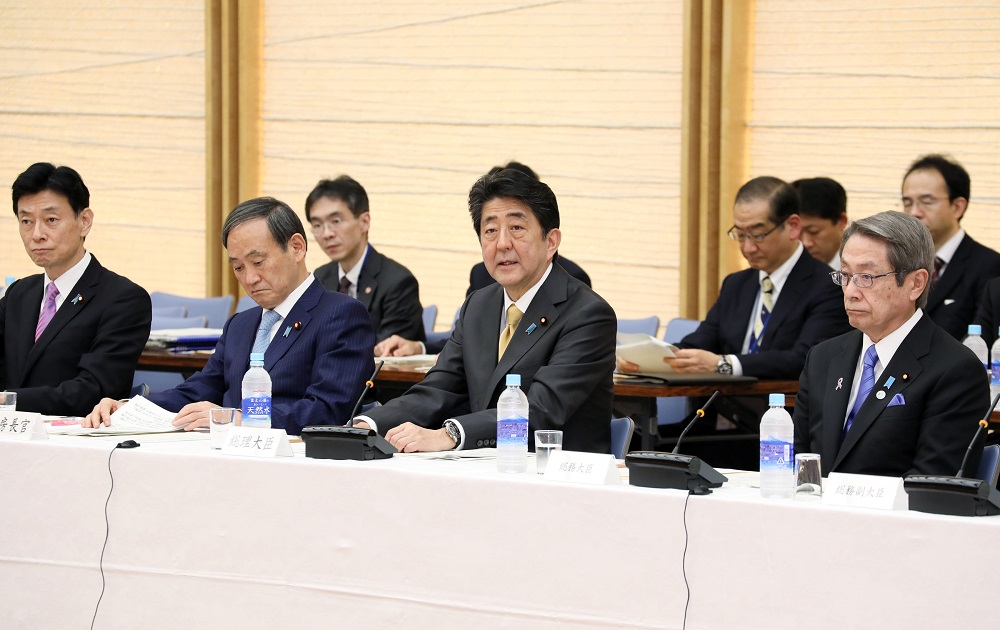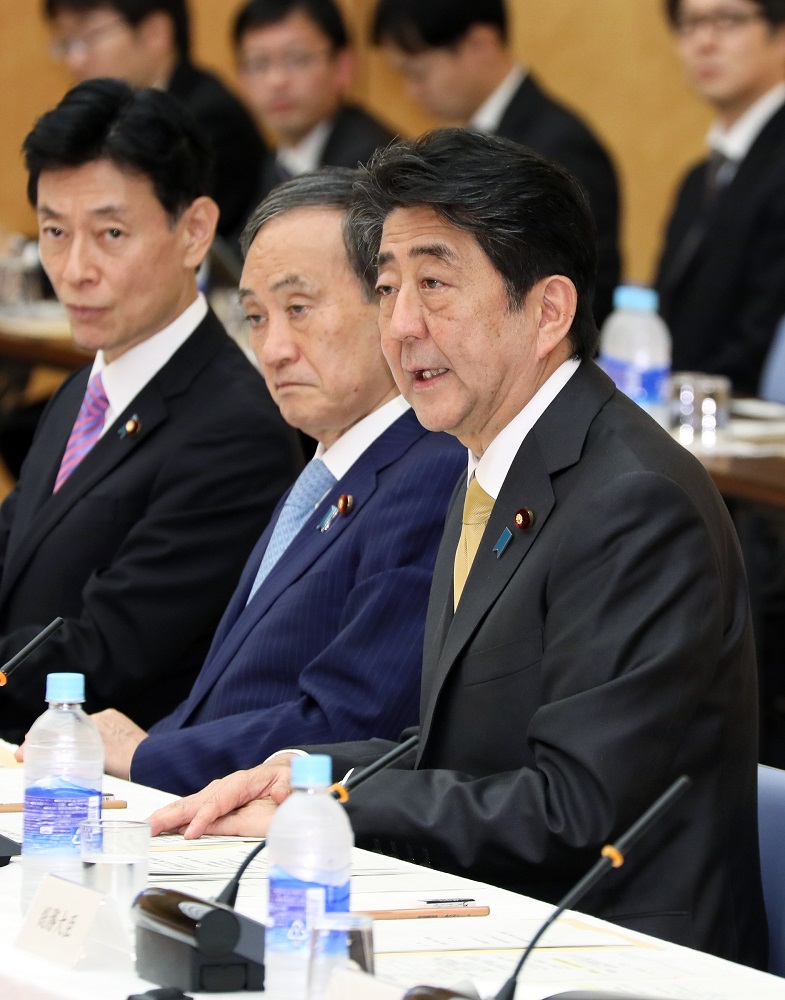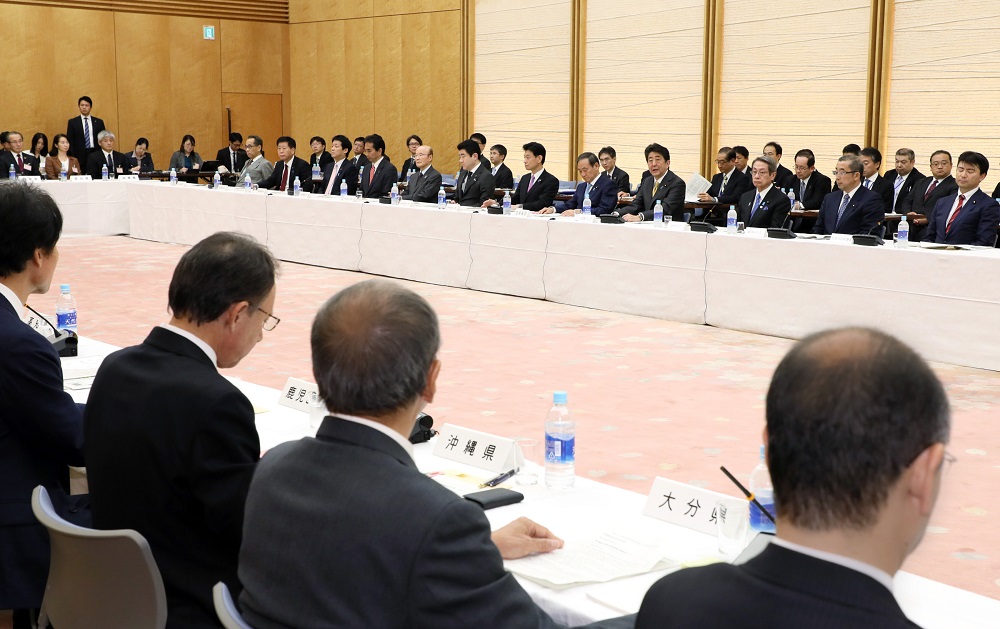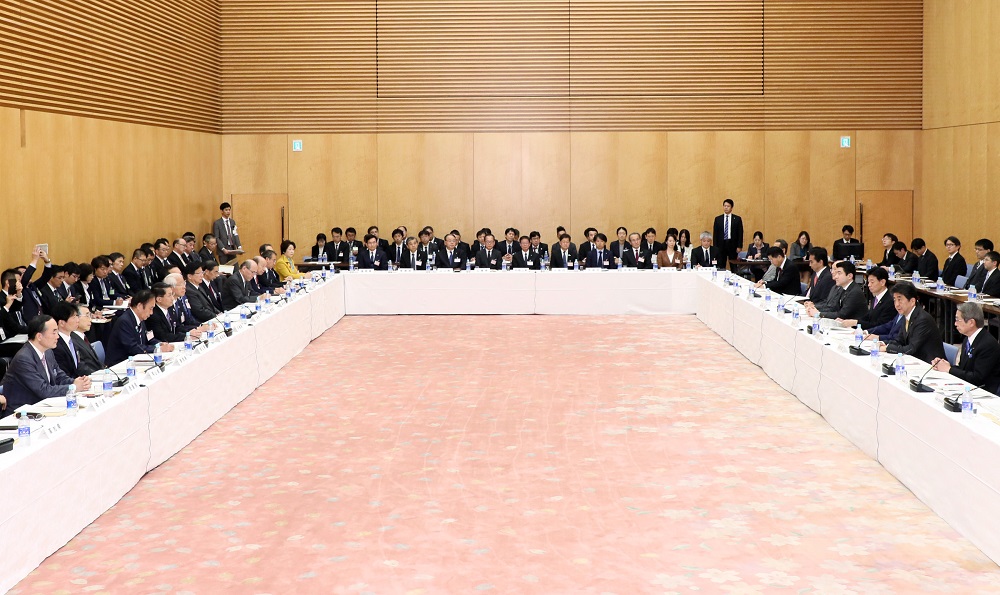Home > News > The Prime Minister in Action > November 2018 > The National Governors’ Conference
The Prime Minister in Action
The National Governors’ Conference
November 9, 2018
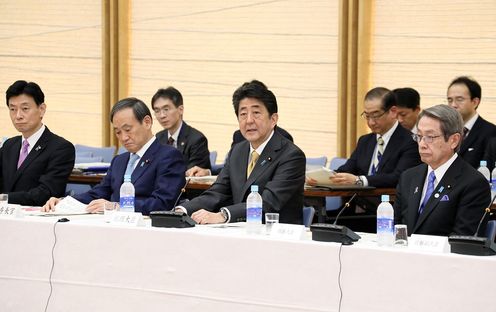
Photograph of the Prime Minister delivering an address
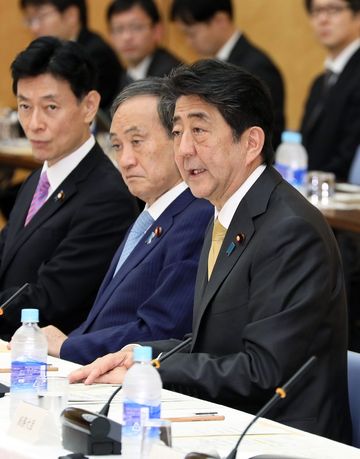
Photograph of the Prime Minister delivering an address
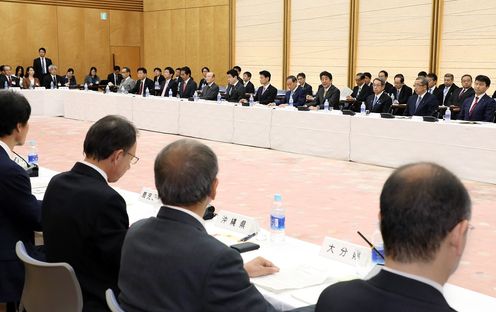
Photograph of the Prime Minister delivering an address
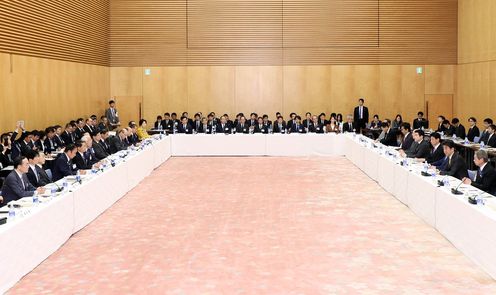
Photograph of the Prime Minister delivering an address
[Provisional Translation]
On November 9, 2018, Prime Minister Shinzo Abe attended the National Governors’ Conference held at the Prime Minister’s Office.
The Prime Minister said in his address,
“Thank you very much for coming from all over the country today despite your busy schedules. I am very pleased to have this opportunity to hear views directly from governors who are making efforts day and night to further develop and advance your prefectures.
Japan will not have vitality unless its regions do as well. With that in mind, the Abe Cabinet has hoisted the banner of regional revitalization high and mobilized various policy measures. Consequently, the ratio of active job openings to applicants exceeds 1.0 for all prefectures for the first time in history, and the regional tax revenue reached a record high.
To further add more momentum to this strong wave of regional revitalization, we will continue to listen carefully to the voices of the local communities and exert our full efforts into creating vitality in the regions over the next three years. To fully draw out the charms that are unique to each region, such as the rich natural environment, characteristic hometown specialties, inimitable technological prowess of local companies, as well as local history, culture, and traditions, we will provide utmost support for the enthusiasm and unique creativity of the regions through means such as the Regional Revitalization Promotion Grant of 100 billion yen. In order to create flows of people to each region, we have until now been devoting efforts into initiatives such as expanding the Regional Vitalization Cooperation Volunteers. Going forward, we aim to provide strong support for U-turns (from their hometown in a local district to a city and back), I-turns (from their hometown in a local district to a different local district) and J-turns (from their hometown in a local district to a nearby city) among young people who feel that there are more opportunities in the regions.
The greatest challenge facing Japan is the declining birthrate and ageing society. We will tackle this issue head-on, and invest boldly in the children who will represent the future and the childrearing generation. We will make greater use of the experiences and wisdom of our energetic and motivated elderly people. Over the next three years, we will proceed with reforms to realize a social security system that can provide peace of mind to all generations from children and the current working generation to the elderly, transforming adversity into opportunity. We will approach the challenges with this resolve.
This summer, a series of natural disasters caused severe damage in many areas in Japan including the earthquake in the northern part of Osaka, the heavy rains in western Japan in July, Typhoon No. 21*, and the Hokkaido Eastern Iburi Earthquake. Through the new scheme established this spring, the municipalities across Japan, including the respective prefectural governments, has provided strong support for the areas affected by the disaster such as the dispatch of more than 17,000 staff in total immediately after the disasters struck. I would like to express my respect for the activities of mutual assistance that go beyond the boundaries of the respective municipalities, and at the same time, ask for your continued support for the municipalities affected by the disasters moving forward.
A supplementary budget of 935.6 billion yen was passed in the Diet the day before yesterday. With this supplementary budget, we will accelerate our disaster recovery efforts, and put in place high priorities such as safety measures for concrete walls to protect the lives of our children and the installation of air-conditioning units in public elementary and junior high schools as a measure against heatstroke. Furthermore, in order to promote building safe communities, we will move forward on infrastructure development in response to the rapidly changing weather conditions in recent years and implement emergency measures for disaster prevention and disaster mitigation as well as building national resilience intensively over the next three years.
The Government will work as one to implement various policy measures with engaging in close discussion with all of you going forward, including this Conference today. I ask for your understanding and cooperation on the policies that the Government promotes. Thank you very much once again, and I am looking forward to hearing your views today.”
*Typhoon Jebi

